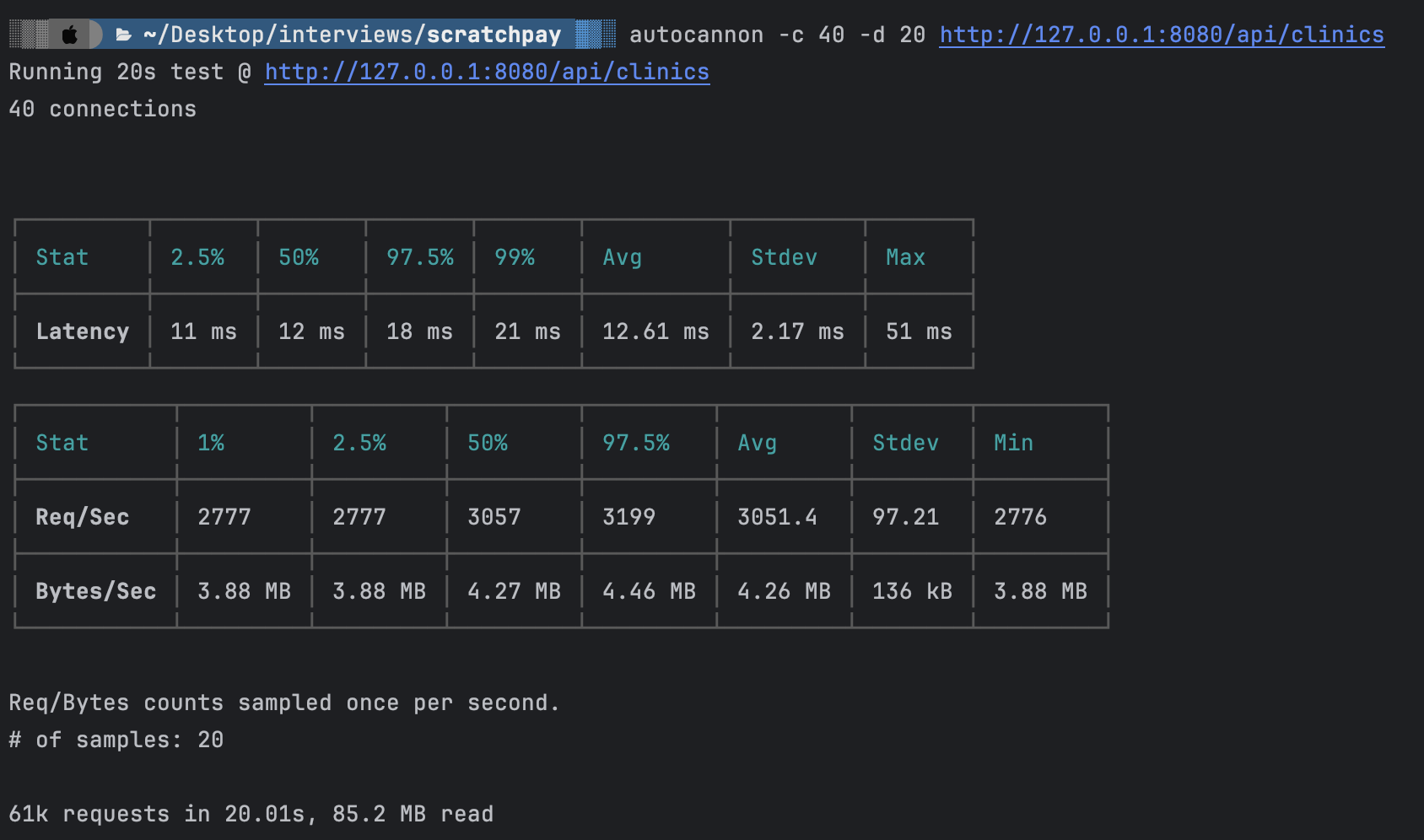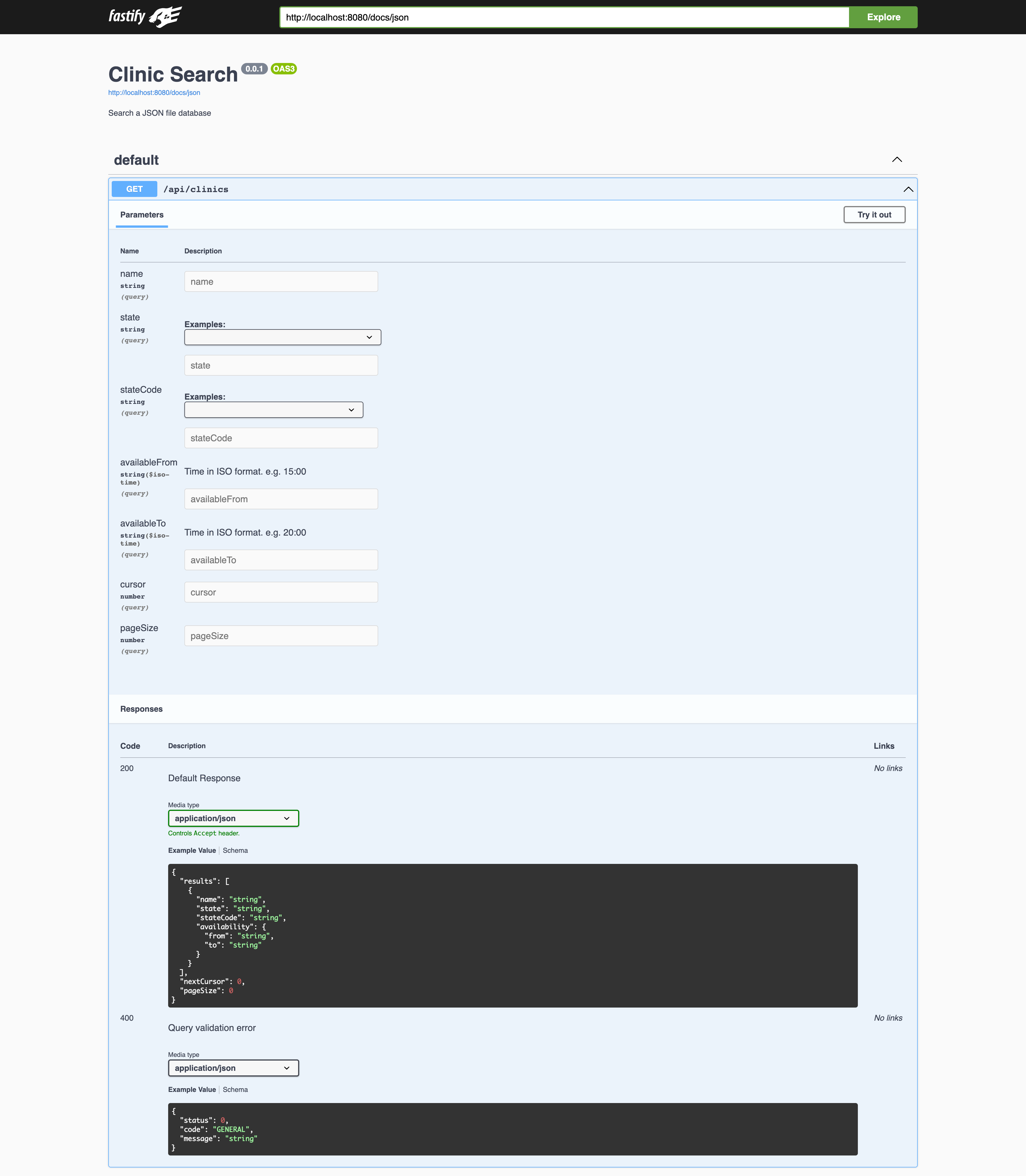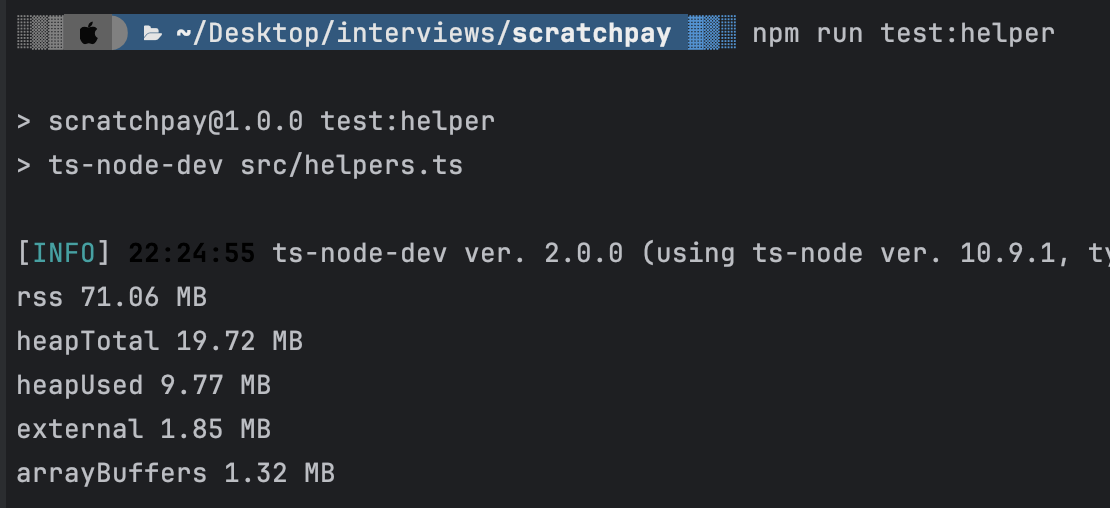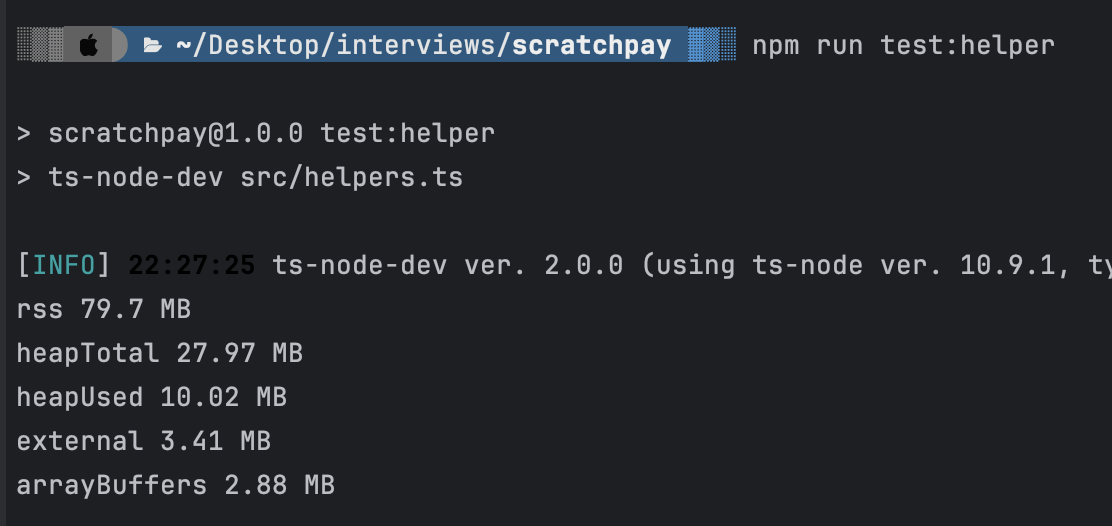A simple NodeJS application based on Fastify. It is written in typescript.
- Copy
.env.sampleand rename it to.env. - Make modifications to
.envas you wish. - Run
npm install.
npm run devnpm run buildYou may want to run the application after being transpiled from Typescript to Javascript, hence, you should be able to
start the project from the build/src/index.js by running:
npm run startOR
You can also run with docker-compose by simple executing:
docker-compose upWhich ever way you decide to start the project, should you not encounter any error, the project should be running at http://0.0.0.0:8080.
Swagger documentation is auto-generated for every new endpoint added to the project. You can access the docs at http://0.0.0.0:8080/docs once you are able to get the server running.
- Proper JSON logging
- Sensitive information such as Authorization details removed from logs
- Auto-generated swagger docs
- CORS configuration
- Validation of payload / query parameters
- Add some indexing to the JSON for improved time complexity, it's only memory efficient right now.
- Write more unit / integration tests and with more data generated using fakerjs.
- Linting and formatting
- Precommit hooks to avoid committing untested code
- Configure Gitlab CI for CI/CD for lint checking, tests, coverage etc.
- Newer records are added to the bottom of the json file store to avoid disrupting the order of pagination.
The is consistent with memory usage even with large datasets as the datasets are streamed in chunks into memory as opposed to loading them all at once.
Currently, the worst case scenario is O(n) as the data is not being indexed. The time spent searching through data increases linearly as the number of records increases. A good solution would be to create indexes for the clinic so that there's some extra data stored elsewhere that is able to track the read offset of each clinic in the list by the name, times and states.
With the current sample data, the application is approximately able to handle 3k req/s. I do not expect this to be same
with increasing data as mentioned in the previous section, but improvement that can be made are suggested in the Todo.



